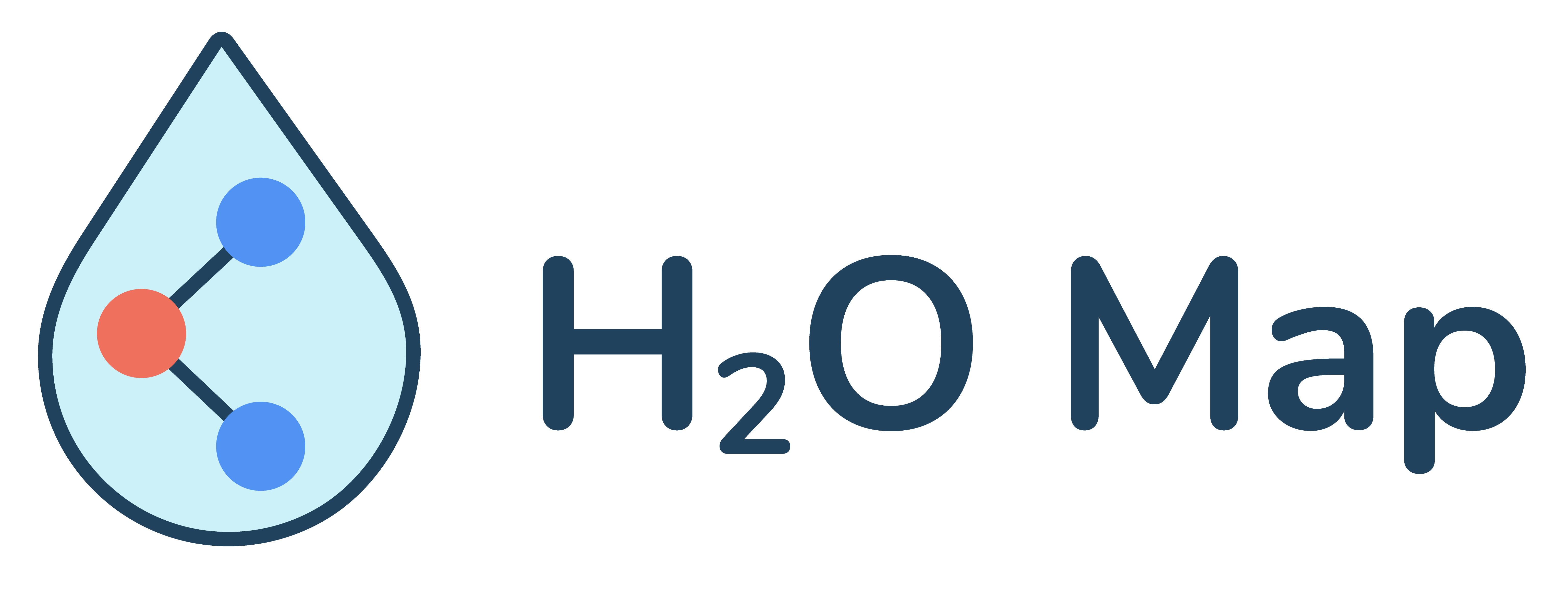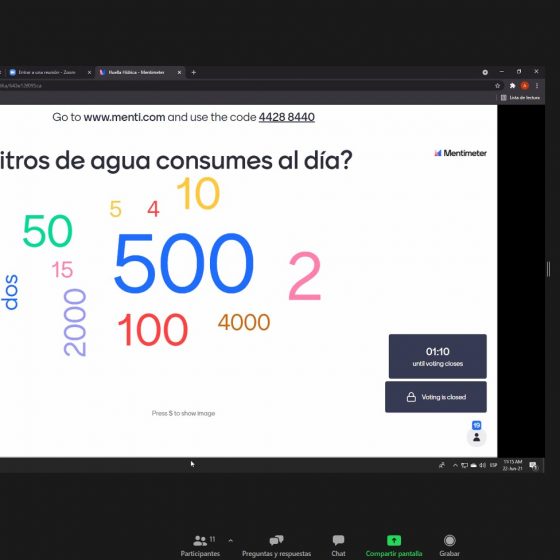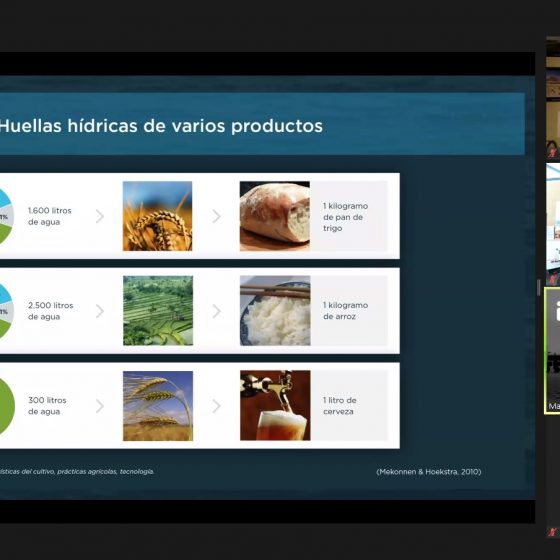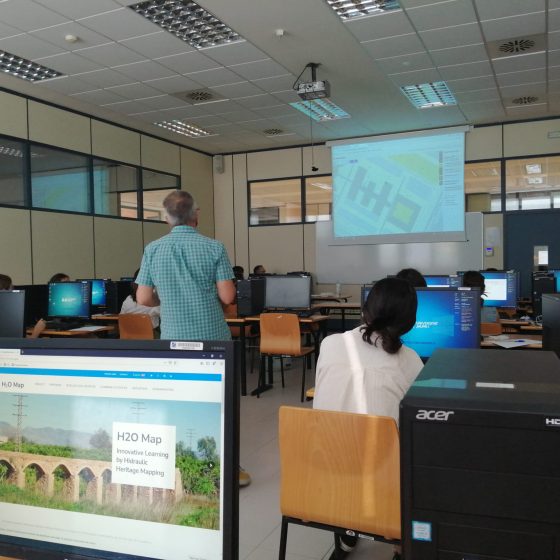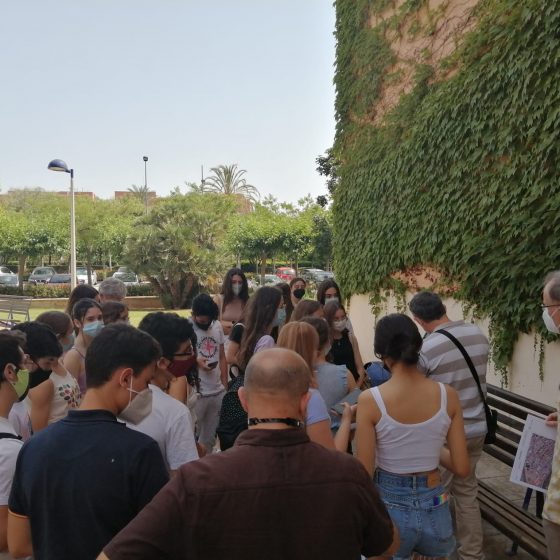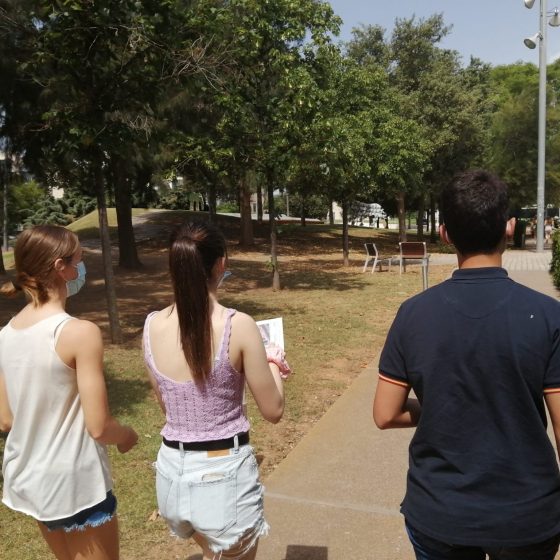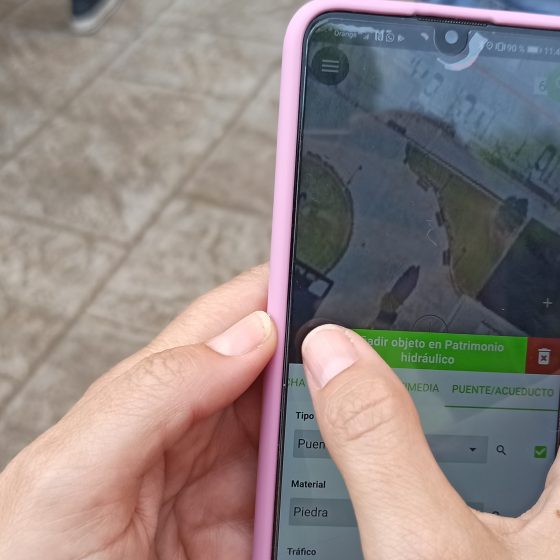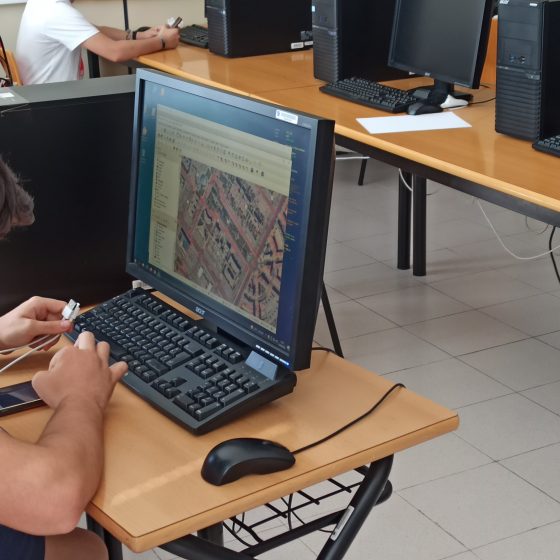To facilitate the use of the ITC tools the Univesities created additional material, such as a complete tutorial on how to create a case from scratch (from QField to database). Also, to facilitate the creation and use of storymaps (ArcGIS), extra online individual meetings were created.
The Universitat Jaume I de Castelló hosted yesterday February 14th, with the collaboration of #eurofue_uji, The Virtual Session #ErasmusPlus Key Action KA2. Laura Menéndez, from the Facsa-UJI Chair, presented the success cases H2OMap, Innovative Learning by Hydraulic Heritage Mapping which serves as a guide for future Erasmus+ projects.
This webinar will explain the water footprint, an environmental indicator that evaluates the quantity and quality of water used to produce food, clothing and other objects of daily life. For this, the water footprint will be explained from different perspectives, making use of three indicators that classify water in colors according to its characteristics: green water footprint (related to rainwater), blue water footprint (related to surface and underground water ) and gray water footprint (related to pollution). In addition, applications of the water footprint will be presented in specific cases, including habits or concerns of today’s youth.
The IES Penyagolosa visits the Jaume I University of Castellón to test the tools that are being developed in the project. To do this, initially professors from the University of Alicante, project partners, explained the use of the App and the database. Subsequently, the students, in small groups, mapped different hydraulic elements of the UJI campus and then, in the computer room, create a joint map.
WWD 2021 – Valuing water
Since 1993, World Water Day has been celebrated every year on March 22. It is a day established by the United Nations to highlight the importance of fresh water.
This year 2021 the chosen theme is “Valuing water”. Water means different things depending on the person and context. But it always has a fundamental role.
In homes, schools and workplaces, water can mean health, hygiene, dignity and productivity. In cultural, religious and spiritual spaces, water can represent a connection with creation, with the community and with oneself. In nature, water can be synonymous with peace, harmony and conservation.
For us, water is a natural, tangible and intangible heritage that we must safeguard together.
Today, water is a resource highly threatened by population growth, ever-increasing demand from the agricultural and industrial sectors, and the increasingly severe effects of climate change.
 English
English Español
Español Italiano
Italiano Português
Português